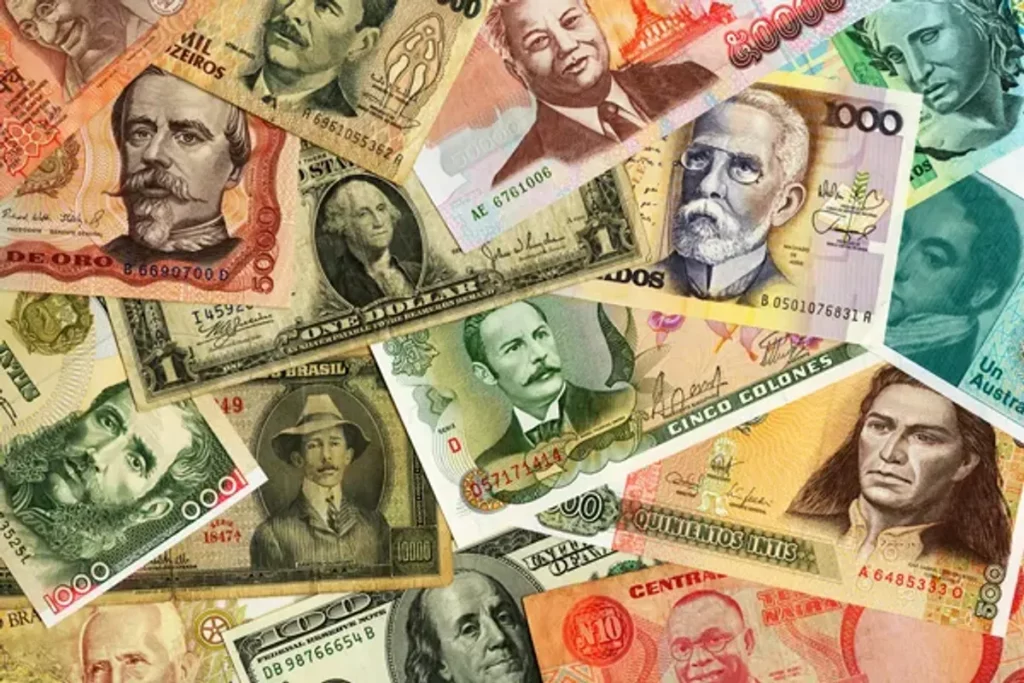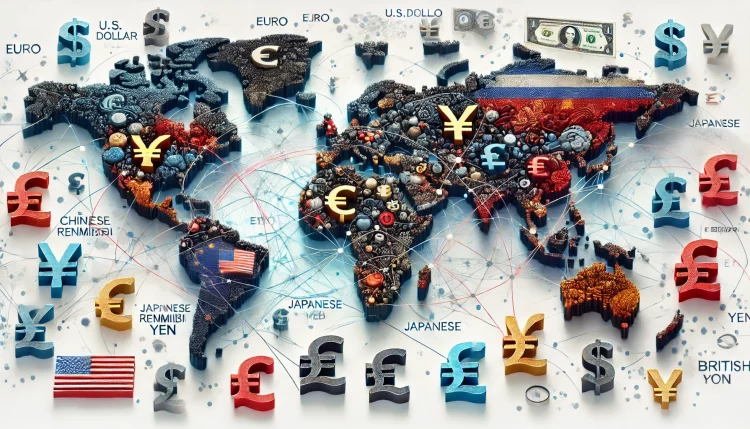Introduction: A Deep Dive into the Ongoing Rivalry Between the US Dollar and the Euro as Dominant Global Currencies
The rivalry between the US dollar and the euro as the world’s dominant currencies has been a defining feature of the global financial system for decades. As the dollar retains its position as the primary global reserve currency, the euro has carved out a significant role in international trade and finance, especially within the European Union (EU) and its trading partners.
The question remains: can the euro ever challenge the dollar’s supremacy, or are we witnessing the early stages of a new chapter in currency competition—one where digital currencies and geopolitical shifts will play a crucial role?
This article delves into the historical background, economic policies, and geopolitical factors that shape the dollar-euro rivalry, analyzing whether the euro can displace the dollar or if new contenders will emerge in the global currency landscape.
Historical Context: A Historical Overview of the Dollar and Euro’s Respective Rise to Prominence
The Rise of the US Dollar
The dominance of the US dollar as the global reserve currency is a relatively recent development, but its rise to prominence began in earnest after World War II. The creation of the Bretton Woods System in 1944 marked a pivotal moment for the US dollar. Under this system, the dollar was pegged to gold at a fixed rate, and other currencies were pegged to the dollar. As the United States emerged as the economic superpower following the war, the dollar gained widespread acceptance as a store of value and a medium of exchange in international trade.
Over time, the US’s economic strength, financial market liquidity, and global political influence cemented the dollar’s position as the world’s primary reserve currency. By the 1970s, after the US left the gold standard, the dollar continued to dominate, supported by its use in oil transactions (the petrodollar system) and its status as the preferred currency in international finance, including sovereign debt issuance.
The Rise of the Euro
The euro came onto the scene much later, with its official introduction in 1999 and the launch of euro banknotes and coins in 2002. The creation of the euro was part of the European Union’s (EU) broader integration project, aimed at promoting economic stability, enhancing trade among member countries, and reducing the fragmentation of Europe’s currencies.
From the outset, the euro was positioned as a serious challenger to the US dollar’s global dominance. The eurozone’s collective economic power—representing one of the largest economies in the world—supported the euro’s rise in global trade and finance. Within just a few years of its introduction, the euro quickly became the second most traded currency globally, surpassing the Japanese yen and the British pound.
The euro’s role in international reserves has steadily grown since its inception, although it still lags behind the dollar in terms of global market share. Today, the euro accounts for around 20-25% of global reserves, while the dollar commands around 60%.
Economic Policies: How the Federal Reserve’s and the European Central Bank’s Monetary Policies Impact the Value of Their Respective Currencies
The monetary policies of the Federal Reserve (Fed) and the European Central Bank (ECB) have a profound impact on the value of the US dollar and the euro. While both central banks have a similar goal—maintaining economic stability and controlling inflation—the tools and strategies they use, and the contexts in which they operate, differ in significant ways.
Federal Reserve Policies and the US Dollar
The Fed has significant influence over the US dollar’s strength, as its decisions directly impact interest rates and money supply. Over the past decade, the Fed’s accommodative monetary policies, especially during and after the 2008 financial crisis and the COVID-19 pandemic, have contributed to fluctuations in the dollar’s value. With historically low interest rates and programs like quantitative easing (QE), the Fed sought to support the US economy by stimulating borrowing, investment, and spending.
However, this policy of low rates and expansive monetary measures has sometimes led to concerns about inflationary pressures and the depreciation of the dollar. In 2021-2022, as the US economy faced surging inflation, the Fed embarked on a path of interest rate hikes to tighten monetary policy. Higher interest rates tend to make the US dollar more attractive to global investors, leading to an appreciation of the dollar.

European Central Bank Policies and the Euro
The ECB, on the other hand, faces a more complex challenge, as it must manage monetary policy across the eurozone, which consists of 19 diverse countries with varying economic conditions. The ECB’s approach to monetary policy has been similar in some respects to the Fed, particularly in response to economic crises. However, the ECB’s monetary tools are constrained by the need to balance the interests of multiple economies, which can create challenges in setting a one-size-fits-all policy.
Like the Fed, the ECB employed quantitative easing and low interest rates in the aftermath of the 2008 financial crisis and the COVID-19 pandemic. In fact, the ECB’s ultra-low interest rate environment and negative interest rates (a strategy employed to stimulate economic activity) have kept the euro at a relatively weaker level compared to the dollar in recent years. A weaker euro can be beneficial for exports but can also result in higher import costs, particularly for energy and raw materials.
While both central banks are grappling with inflation, the ECB has faced additional challenges, including economic fragmentation within the eurozone and political pressures from member states. This fragmentation complicates efforts to take decisive actions to strengthen the euro in the same way the Fed manages the US dollar.
Geopolitical Influences: How US and EU Foreign Policies Affect Currency Values and International Trade
Geopolitics plays a significant role in the value of the dollar and euro, influencing global trade flows, investment decisions, and market sentiment.
US Foreign Policy and the Dollar
The US’s foreign policies have long supported the dollar’s role as the global reserve currency. One of the most significant geopolitical factors is the petrodollar system, in which oil is traded in US dollars. This has created a massive demand for dollars across the globe, particularly among oil-importing countries that need dollars to pay for energy.
The US also has the ability to influence the global financial system through its sanctions policies. For example, the US has imposed economic sanctions on countries like Iran, Russia, and Venezuela, compelling these nations to use the dollar less in international trade and reducing their access to US financial markets. These sanctions can, in turn, lead to geopolitical tensions that affect the dollar’s value, but they also reinforce the dollar’s position as the dominant global currency.
EU Foreign Policy and the Euro
The EU has increasingly used its collective economic power to pursue a more independent foreign policy, which has implications for the euro’s role in global trade. For instance, following sanctions on Russia after the annexation of Crimea in 2014 and the Russia-Ukraine war of 2022, European countries have explored alternatives to the dollar for energy transactions and international trade. The euro has gained prominence in energy markets, especially in Europe’s dealings with Russia and Middle Eastern countries. This move away from the dollar could help to boost the euro’s role in global trade, particularly in the energy sector.
Furthermore, the EU’s growing global influence, especially in trade agreements and economic partnerships, continues to reinforce the euro’s position in international finance. However, unlike the US, the EU lacks the military power and global reach that the US exercises to promote the dollar, limiting its ability to compete on equal terms.
Outlook: Will the Euro Ever Challenge the Dollar’s Dominance, or Are We Witnessing a New Phase in Currency Competition, Especially with Digital Currencies on the Rise?
Despite the euro’s progress and its growing influence in international trade, the US dollar remains the undisputed leader in global currency markets. The sheer size and depth of the US financial markets, the liquidity of the dollar, and the US’s global geopolitical reach are powerful factors that continue to ensure the dollar’s dominance.
However, the euro has shown resilience and may continue to gain ground in specific sectors, such as energy markets and cross-border trade. Additionally, the rise of digital currencies, including central bank digital currencies (CBDCs), could potentially disrupt the dollar-euro rivalry by introducing new forms of currency competition. The European Central Bank and the Federal Reserve are both exploring the development of digital currencies, which could reshape the global currency landscape in the coming years.
In conclusion, while the euro may not yet be in a position to fully dethrone the dollar, the ongoing developments in global trade, financial markets, and digital currencies suggest that the rivalry between the dollar and the euro will continue to evolve, with the potential for new players to enter the fray.






























